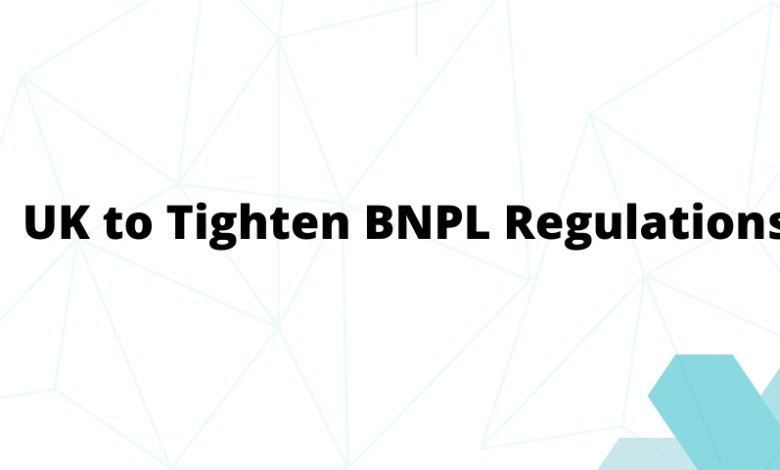UK BNPL Regulations: New Rules for Buy Now Pay Later

The recent tightening of UK BNPL regulations signals a significant shift in the buy now, pay later landscape. As consumer reliance on BNPL options grows, authorities are stepping in to ensure that these financial products are safe and responsible. These new rules, aimed at preventing debt traps and enhancing protection for consumers, will require companies like Klarna and Affirm to perform thorough loan assessments before approving financing. This move reflects broader fintech regulations in the UK, which seek to create a more secure environment for both businesses and shoppers. With the anticipation of these industry changes, stakeholders are keenly observing how they will reshape the BNPL market and consumer experiences in the near future.
With an increasing number of consumers turning to alternative financing solutions, the legislative focus on the buy now, pay later sector has never been more pressing. Known colloquially as BNPL, this payment method has drawn scrutiny as it expands, prompting legislation aimed at ensuring financial integrity and borrower privacy. In the rapidly evolving landscape of consumer finance, regulatory measures are becoming crucial for safeguarding against unsustainable debt and ensuring that lenders adhere to prudent lending practices. The upcoming changes in the BNPL framework highlight the necessity for companies to perform adequate assessments before extending credit while amplifying consumer advocacy against financial pitfalls. As the UK government ushers in these developments, the regulatory focus promises to reshape how consumers manage their purchasing power.
UK BNPL Regulations: A New Era of Oversight
In the UK, the upcoming buy now, pay later (BNPL) regulations signal a transformative shift in consumer protection within this burgeoning sector. As the government prepares to roll out these changes next year, the landscape for fintech regulations in the UK is set to evolve significantly. These new rules, designed to mitigate the chaotic conditions that have characterized the BNPL market, will require companies like Klarna and Affirm to conduct comprehensive assessments of borrowers’ repayment abilities before issuing loans. This measure aims to prevent unsuitable lending practices that have contributed to widespread consumer debt.
The necessity for such regulations stems from the rapid growth of the BNPL industry, which has been likened to a “wild west” scenario. City Minister Emma Reynolds emphasized that the regulations would not only protect consumers from potential debt traps but also provide the industry with the clarity necessary to foster investment and job creation. By establishing a clear framework, the UK government intends to ensure that consumers can make informed decisions about their financial commitments, thereby promoting a healthier economic environment.
Impact of BNPL Regulations on Consumer Rights
The impending BNPL regulations are expected to enhance consumer rights significantly by introducing robust measures to address borrower complaints and streamline refund processes. One of the key features of the new rules is the provision that allows consumers to escalate issues related to BNPL transactions to the Financial Ombudsman—a crucial safeguard that enhances consumer trust. This aligns with wider concerns about the affordability of BNPL products, as consumers will have better recourse when facing repayment difficulties.
As Klarna and other BNPL providers adapt to these regulations, customers will benefit from improved clarity regarding their rights and responsibilities. The requirement for upfront loan assessments will ensure that individuals are only offered credit they can realistically afford, which is vital for preventing the onset of debt spirals that can occur with unregulated lending practices. Ultimately, these regulatory measures are expected to cultivate a more responsible borrowing culture among consumers.
Frequently Asked Questions
What are the new UK BNPL regulations set to be implemented next year?
The new UK BNPL regulations, set to take effect next year, will require Buy Now Pay Later companies to perform upfront loan assessments to ensure borrowers can repay their loans. Additionally, these regulations will streamline refund processes for consumers and allow complaints related to BNPL services to be escalated to the Financial Ombudsman.
How will the UK BNPL regulations affect companies like Klarna and Affirm?
Under the UK BNPL regulations, companies like Klarna and Affirm will need to adhere to stricter standards, including conducting thorough loan assessments before approving credit. This aims to prevent consumers from falling into debt traps while ensuring that the BNPL industry maintains a sustainable and responsible growth trajectory.
What is the purpose of the upcoming Buy Now Pay Later regulation in the UK?
The purpose of the upcoming Buy Now Pay Later regulation in the UK is to address concerns about the chaotic conditions in the BNPL sector, to protect consumers from debt traps, and to provide a more structured regulatory environment that benefits both consumers and BNPL service providers.
Can consumers escalate BNPL complaints under the new regulations?
Yes, under the new UK BNPL regulations, consumers will have the right to escalate their complaints about BNPL services to the Financial Ombudsman, which is designed to resolve disputes between consumers and financial service providers.
What are the concerns associated with debt traps in the BNPL industry?
Concerns regarding debt traps in the BNPL industry arise from the potential for consumers to accumulate unmanageable debt due to high bounce-back loans with minimal assessments before lending. The new UK regulations aim to mitigate these risks by ensuring that proper repayment capabilities are verified before extending credit.
What changes can we anticipate in fintech regulations in the UK regarding BNPL?
The anticipated changes in fintech regulations regarding BNPL in the UK include the introduction of clear, standardized operational guidelines for BNPL companies, updating the Consumer Credit Act to reflect modern lending practices, and enhancing consumer protections to foster a healthier borrowing environment.
Why do BNPL companies support the new regulations introduced in the UK?
BNPL companies support the new regulations introduced in the UK because they believe it will create clearer rules and compliance standards, promote consumer protection, and allow for sustainable growth within the BNPL market as it continues to gain traction among consumers.
How will the upcoming regulations impact the loan assessment process for BNPL products?
The upcoming regulations will mandate BNPL companies to conduct more thorough loan assessments before lending, ensuring that they verify borrowers’ repayment abilities. This change aims to improve responsible lending practices and reduce the risk of consumers falling into difficult financial situations.
What future implications do the new UK BNPL regulations have for the consumer credit landscape?
The new UK BNPL regulations are expected to lead to a more balanced and transparent consumer credit landscape, ensuring that BNPL products are offered responsibly while also fostering innovation in lending practices that align with current consumer behaviors and financial stability.
| Key Points |
|---|
| The UK is implementing tighter regulations on BNPL services set to take effect next year. |
| BNPL lenders like Klarna and Affirm will face formal assessments for borrower repayment ability. |
| The regulations are intended to address the chaotic BNPL environment and protect consumers from debt traps. |
| Consumers will be able to escalate complaints to the Financial Ombudsman. |
| Klarna and other BNPL firms support regulatory measures to ensure consistent standards across the industry. |
| The existing Consumer Credit Act will be updated to better reflect current lending practices. |
Summary
The UK BNPL regulations are set to transform the landscape of the buy now, pay later industry by introducing formal assessments for borrowers and ensuring better protections against debt traps. These new measures aim to stabilize an otherwise chaotic market, providing clarity and consistency, while also supporting consumer protection. Through collaboration with financial authorities, BNPL companies are eager to embrace this regulatory change, as it lays the groundwork for sustainable growth in a sector increasingly popular among UK consumers.




